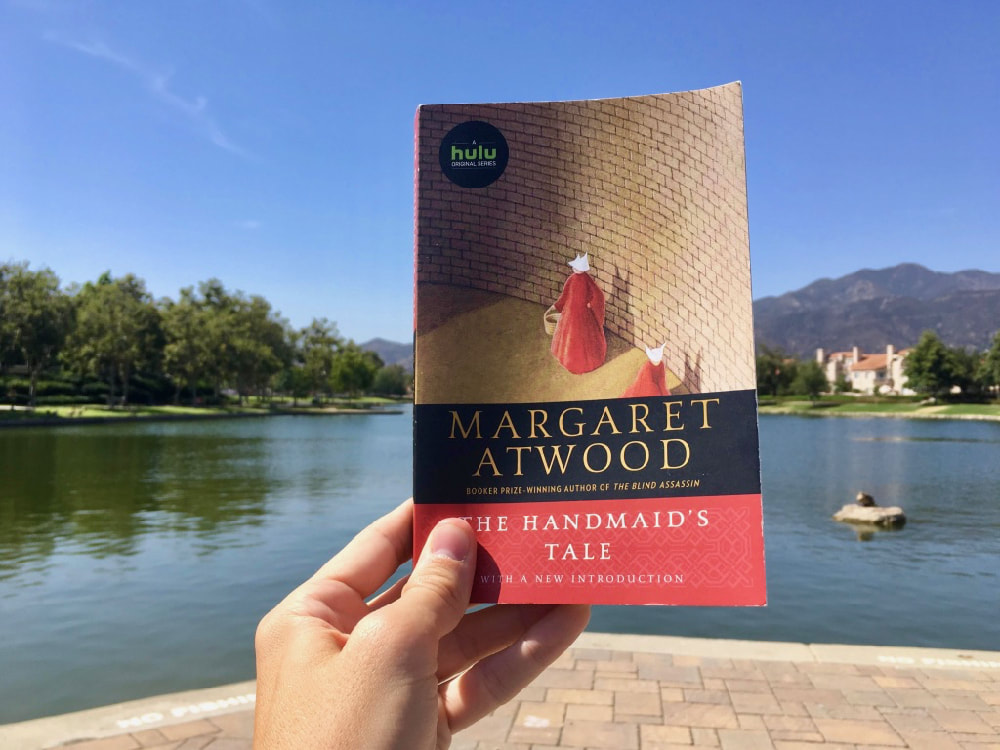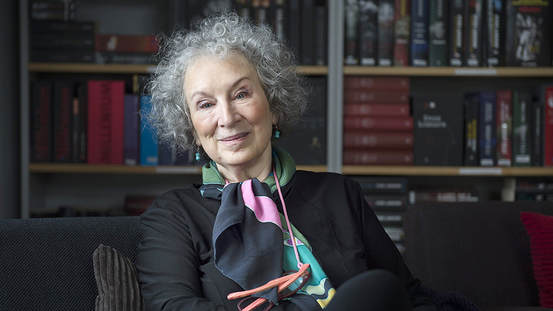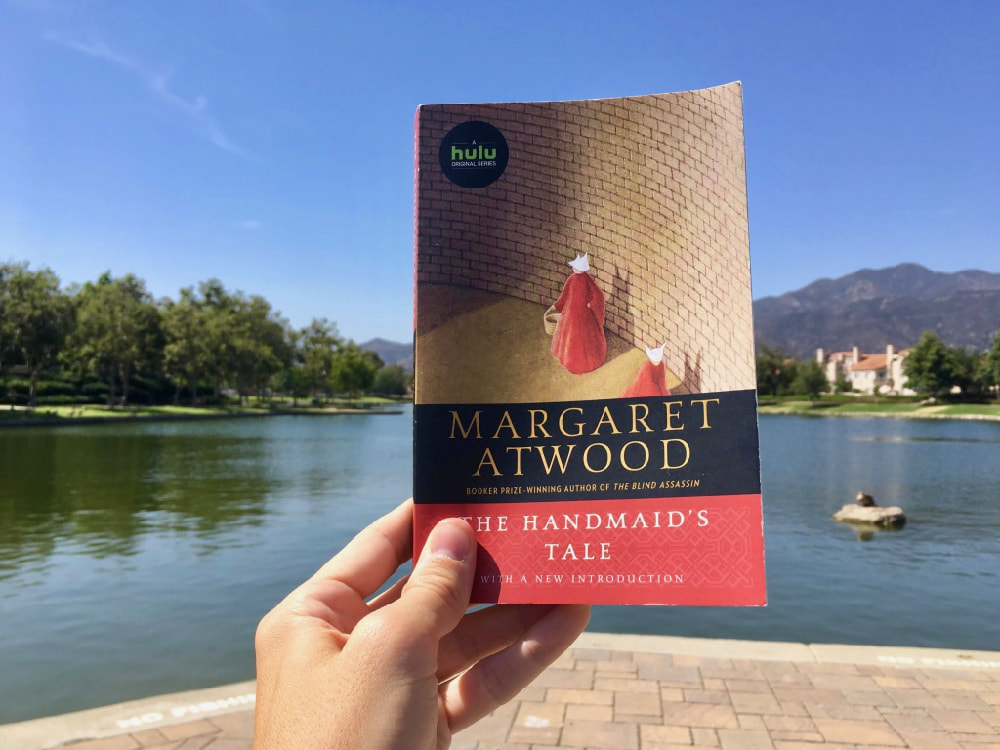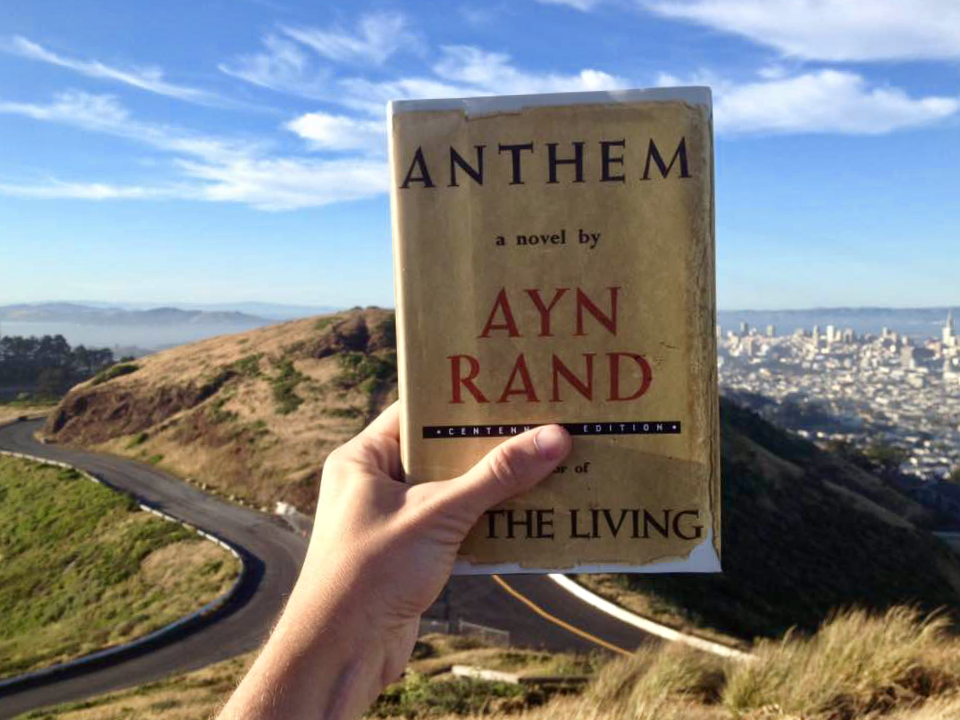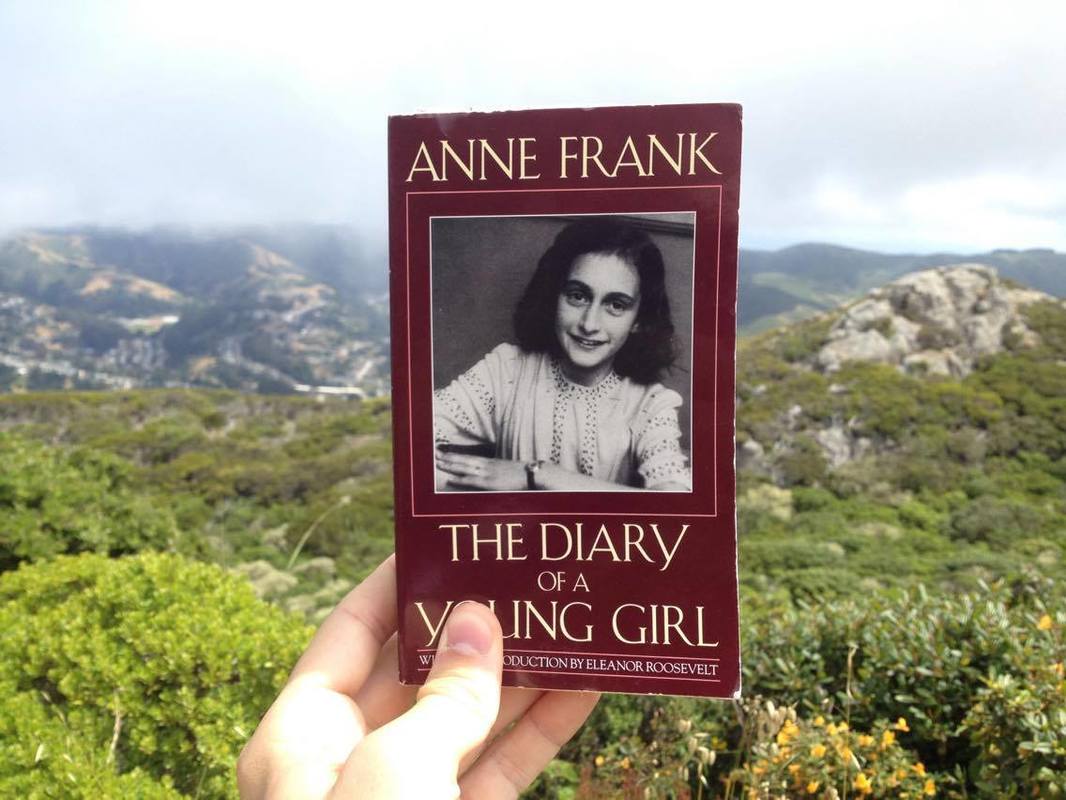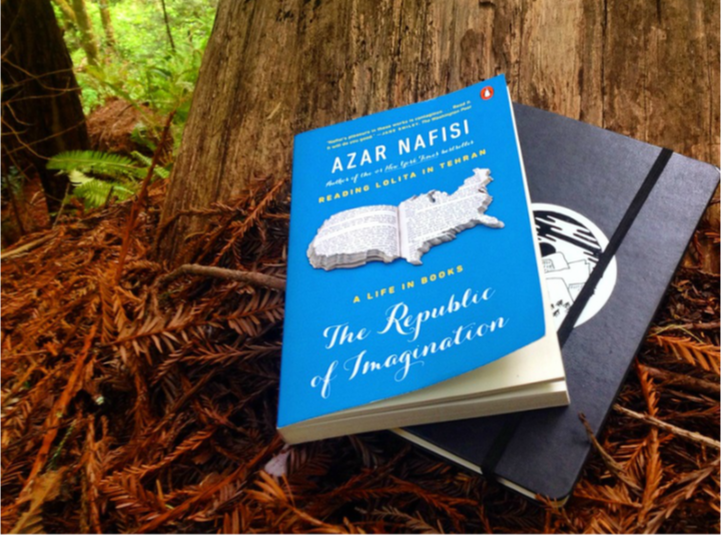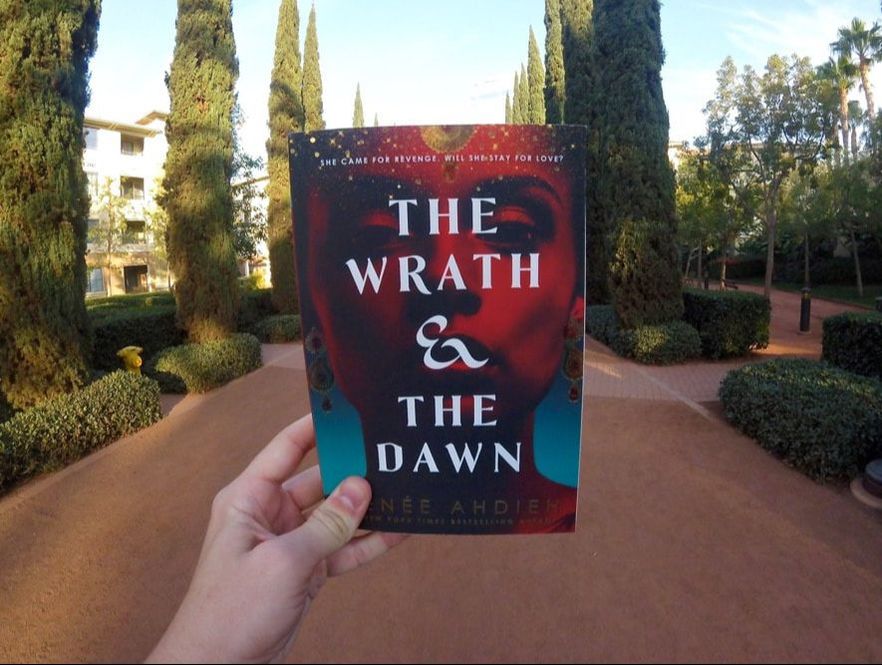| "Women can't hold property anymore, she said. It's a new law. Turned on the TV today?" — Margaret Atwood, The Handmaid's Tale |
This dystopia explores sex, politics, and religion. Set in the near future in New England, the story follows Offred and several other Handmaids in the Republic of Gilead. They're not humans. They're property.
Women are forbidden to read, write, skip church services, flirt or touch a man other than their Commander, or possess contraband such as lingerie and music with love lyrics. They cannot leave the house without permission. Homosexuals, atheists, and other impure individuals are hunted by soldiers, then hanged from Gilead's high stone wall as reminders to citizens that they're all 'Under His Eye.' A Handmaid's only hope is to get pregnant from their Commander, and as fast as possible, else they're shipped off to the colonies, an anarchical cesspool beyond the frontiers of 'civilization.'
Clocking in at just over 300 pages, The Handmaid's Tale is a powerful read. There are scenes where I was so nervous and engrossed that I realized afterwards I had moved to the edge of my couch and gripped the pages tighter. Margaret Atwood's storytelling ability to draw Offred and others as not just victims of injustice, but well-rounded individuals with dreams and personalities made me care about each of them. Their resilience, fears, cunning plans, and temptations to betray one another—all within a terrifying, airtight world that seemed to always be closing in around them—was fantastic. I haven't seen the hulu original series starring Elizabeth Moss, but if it's only half as good as the book, I'll be delighted. [JG]
Women are forbidden to read, write, skip church services, flirt or touch a man other than their Commander, or possess contraband such as lingerie and music with love lyrics. They cannot leave the house without permission. Homosexuals, atheists, and other impure individuals are hunted by soldiers, then hanged from Gilead's high stone wall as reminders to citizens that they're all 'Under His Eye.' A Handmaid's only hope is to get pregnant from their Commander, and as fast as possible, else they're shipped off to the colonies, an anarchical cesspool beyond the frontiers of 'civilization.'
Clocking in at just over 300 pages, The Handmaid's Tale is a powerful read. There are scenes where I was so nervous and engrossed that I realized afterwards I had moved to the edge of my couch and gripped the pages tighter. Margaret Atwood's storytelling ability to draw Offred and others as not just victims of injustice, but well-rounded individuals with dreams and personalities made me care about each of them. Their resilience, fears, cunning plans, and temptations to betray one another—all within a terrifying, airtight world that seemed to always be closing in around them—was fantastic. I haven't seen the hulu original series starring Elizabeth Moss, but if it's only half as good as the book, I'll be delighted. [JG]
WHO IS MARGARET ATWOOD?
| Margaret Atwood is the author of 40+ books of fiction, poetry, and critical essays. Her works have been translated into 35 languages. Some of them that may interest those who've read The Handmaid's Tale are The Blind Assassin (a murder-mystery set in 1945), Alias Grace (a murder-mystery set in 1843), and The Penelopiad (a version of The Odyssey from the POV of Odysseus' wife, Penelope), and a new sci-fi trilogy set in the near future. You can learn more about Ms. Atwood, as well as her tour schedule and other project at her website. |
QUOTES
{I liked and jotted down}
[*] "Lillies used to be a movie theater, before. Students went there a lot; every spring they had a Humphrey Bogart Festival, with Lauren Bacall or Katherine Hepburn, women on their own, making up their minds. They wore blouses and buttons down the front that suggested the possibility of the word undone. These women could be undone; or not. They seemed to be able t choose, then. We were a society dying, said Aunt Lydia, of too much choice."
[*] "We learned to whisper almost without sound. In the semidarkness we could stretch out our arms, when the Aunts weren't looking, and touch eachother's hands across space. We learned to lipread, our heads flat on the beds, turned sideways, watching each other's mouths. In this way we exchanged names, from bed to bed. Alma. Janine. Dolores. Moira. June."
[*] "In returning my pass, the one with the peach-colored mustache bends his head to try to get a look at my face. I raise my head a little, to help him, and he sees my eyes and I see his, and he blushes. His face is long and mournful, like a sheep's , but with the large full eyes of a dog, spaniel not terrier. His skin is pale and unwholesomely tender like skin under a scab. Nevertheless, I think of placing my hand on it, this exposed face. He is the one who turns away."
[*] "Now we walk the streets, in red pairs, and no man shouts obscenities at us, speaks to us, touches us. No one whistles. There is more than one kind of freedom, said Aunt Lydia. Free to and freedom from. In the days of anarchy, it was freedom to. Now you are being given freedom from. Don't underrate it."
[*] "Give me children or else I die."
[*] "I am like a room where things once happened and now thing does, except the pollen of the weeds that grow up outside the window, blowing in as dust across the floor."
[*] "Under His Eye."
[*] "We learned to whisper almost without sound. In the semidarkness we could stretch out our arms, when the Aunts weren't looking, and touch eachother's hands across space. We learned to lipread, our heads flat on the beds, turned sideways, watching each other's mouths. In this way we exchanged names, from bed to bed. Alma. Janine. Dolores. Moira. June."
[*] "In returning my pass, the one with the peach-colored mustache bends his head to try to get a look at my face. I raise my head a little, to help him, and he sees my eyes and I see his, and he blushes. His face is long and mournful, like a sheep's , but with the large full eyes of a dog, spaniel not terrier. His skin is pale and unwholesomely tender like skin under a scab. Nevertheless, I think of placing my hand on it, this exposed face. He is the one who turns away."
[*] "Now we walk the streets, in red pairs, and no man shouts obscenities at us, speaks to us, touches us. No one whistles. There is more than one kind of freedom, said Aunt Lydia. Free to and freedom from. In the days of anarchy, it was freedom to. Now you are being given freedom from. Don't underrate it."
[*] "Give me children or else I die."
[*] "I am like a room where things once happened and now thing does, except the pollen of the weeds that grow up outside the window, blowing in as dust across the floor."
[*] "Under His Eye."
YOU MAY ALSO LIKE

